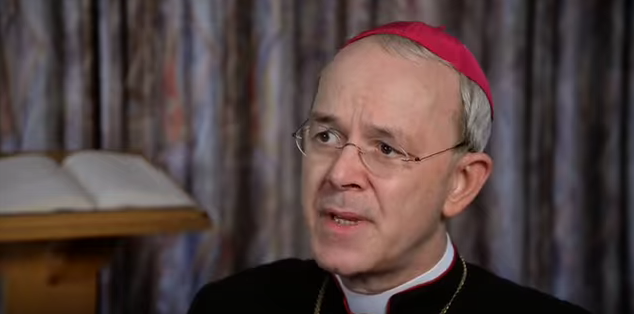
Last month, Bishop Athanasius Schneider of Kazakhstan granted an exclusive interview to John-Henry Westen of LifeSiteNews.com
I rely on LifeSite for quite a bit. I frequent it so I can get up to date with the goings on in the Church generally, but also with the pro-life and “transgender” movements. Bookmark it if you haven’t already.
The interview is essential reading. Two important takeaways: One, what Bp. Schneider says about surviving the “heretical wasteland” Catholics across the world are living in. And two, what Bp. Schneider says about the how the Church should operate. First, his survival tips:
Second, when asked if Catholics should speak up or “remain silent” when the Pope makes statements that “do not seem to line up with Catholic teaching,” His Excellency responded:
In the Church, we are not living in a dictatorship. In a dictatorship, we do not have the courage to contradict the dictator. But when, in the Church, we arrive at a situation where faithful priests and bishops are fearful to say anything, like in a dictatorship, this is not Church. This is not the Church of dialogue, of collegiality, of family. No. In a family, there has to be the possibility of exchange your [views].
And sometimes, good parents even allow their children, when they are growing, to express themselves. Why not? A good father will accept when his elder son says, ‘Father, this is not so correct.’ Sometimes it happens.
And so, the Holy Father is our father. And when he says to these groups, ‘You must not speak all the time about these [things]’ you can say with all reverence, ‘Holy Father, this is an unjust accusation to us. We are unjustly accused. It is not the case that we speak every time, and all the time, about this. We don’t speak on this all the time. We speak on the Gospel, we speak about family life, we speak about prayer. So, your judgment, it is unjust to us. Your accusation is unjust. And permit us, in some way, to defend ourselves, and hear our voice.’
I hope that Traditionalists – of all stripes – read these words carefully, as they apply not only to the Pope. A climate where the laity, or even priests, are bullied, intimidated into silence, scared about voicing their opinions or fearful of asking their superiors legitimate questions about prudential matters is not a charitable environment. It is, as the good Bishop tells us, a dictatorial one.
